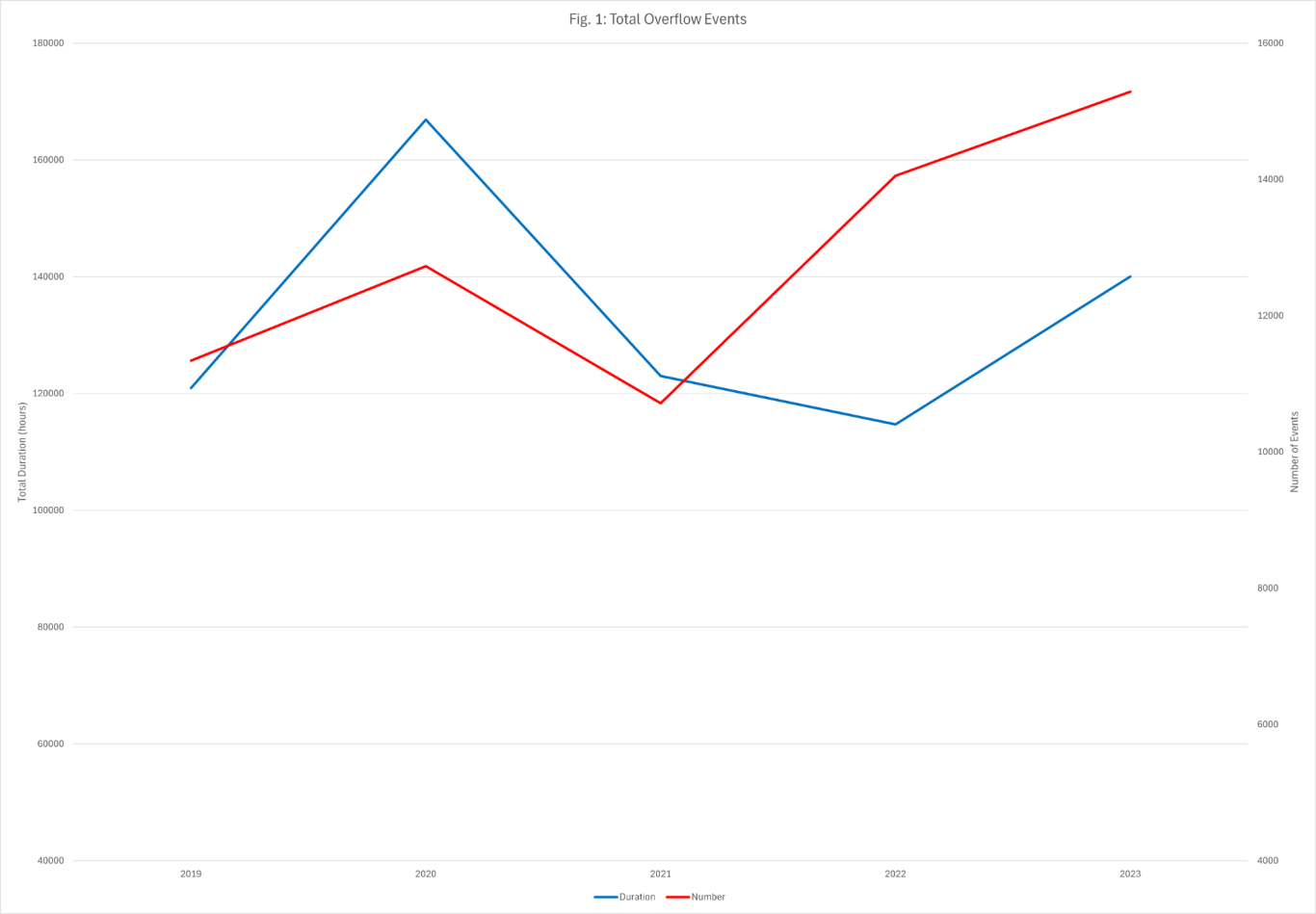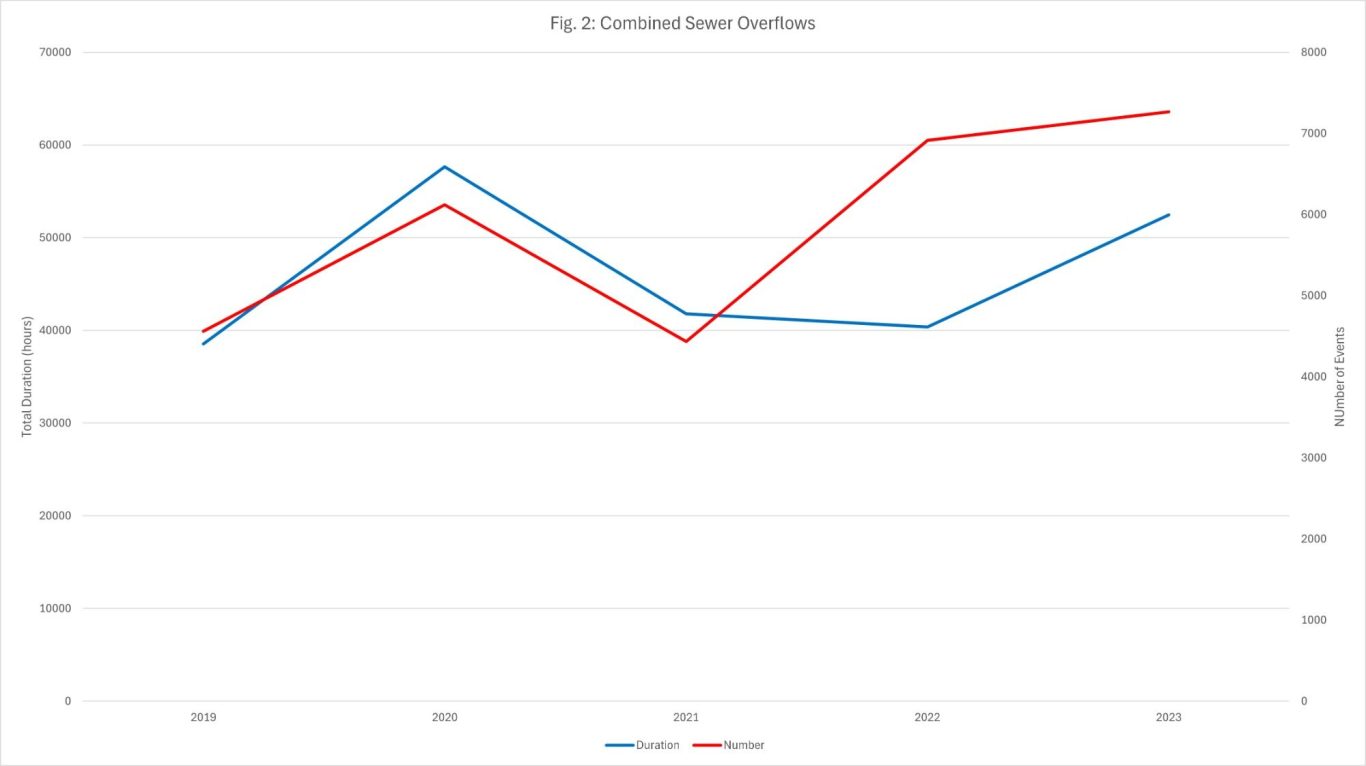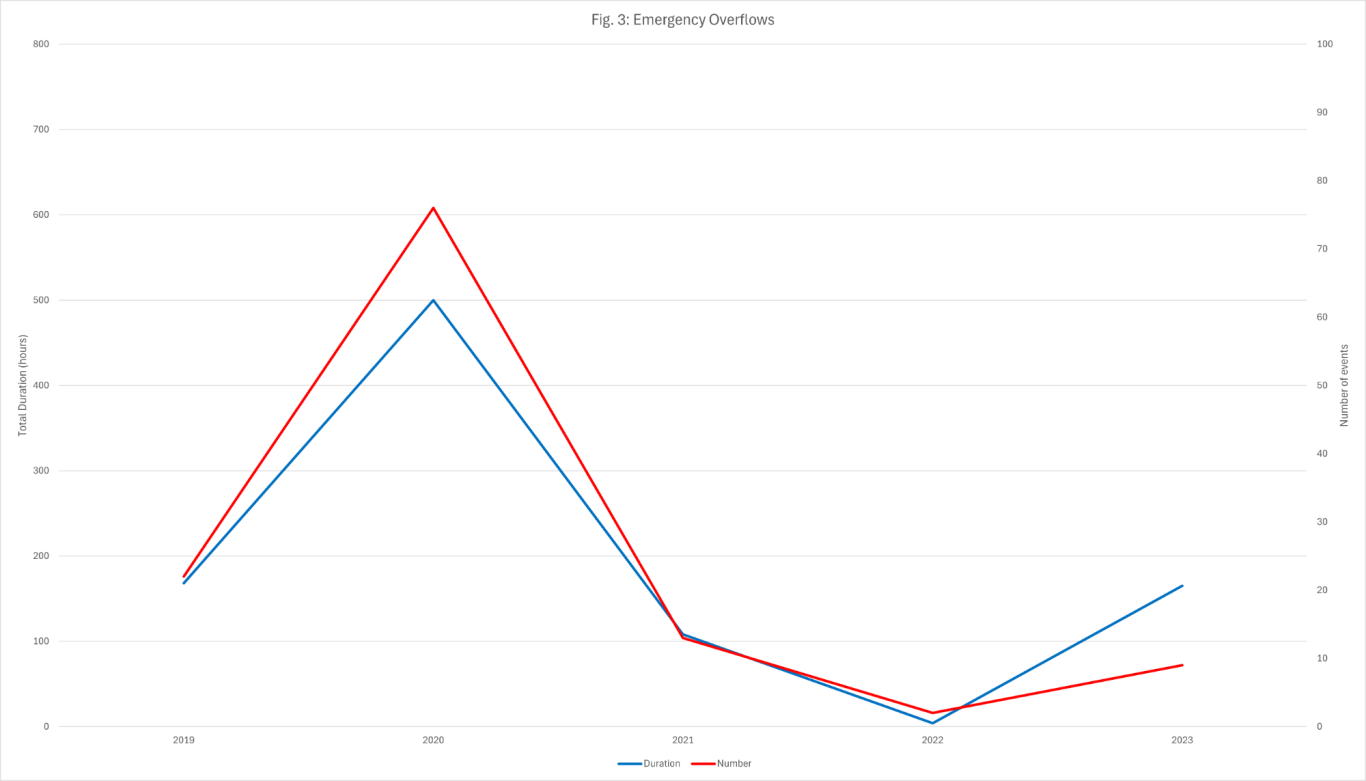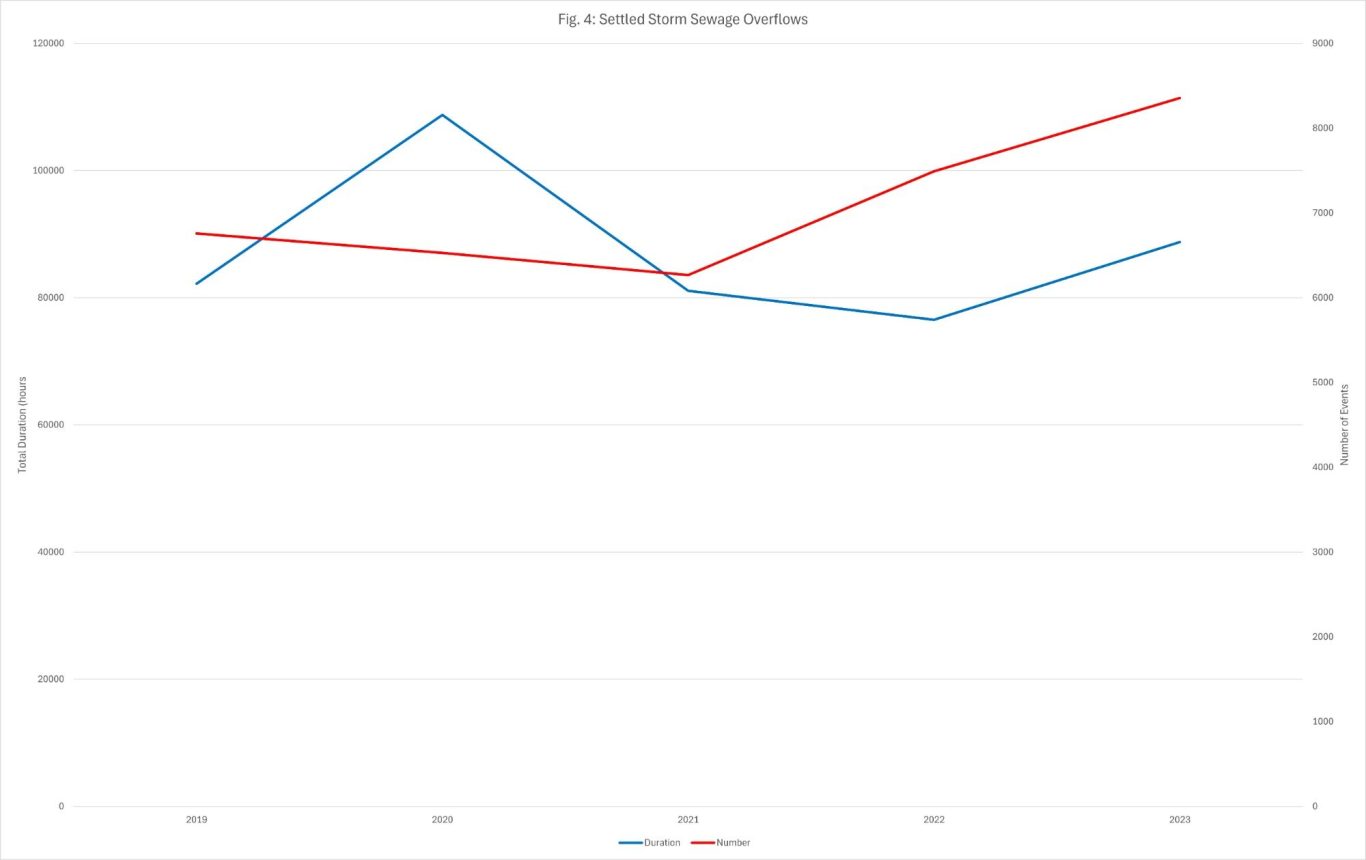www.stateofthecoast.scot
Combined Sewage Outflow
Key Findings
Combined Sewer Overflows (CSOs) prevent the flooding of buildings by backed up pipes during times of heavy rain. In many cities and towns, the sewage systems date back to the Victorian era. These combined pipes (carrying both rainwater and untreated sewage water) may become overwhelmed if rainfall has been high, and so are designed to overflow into rivers and other waterways (UK Government, 2020). While necessary to maintain the effective functioning of sewers, CSOs can have detrimental environmental effects. The input of harmful chemicals, bacteria, and sewage related debris pollutes river waters, beaches and oceans, posing a risk to both wildlife and human health (The Rivers Trust, 2024).
Lacking monitoring infrastructure for these overflows leads many to go unnoticed, causing difficulties in tracking pollution levels of the country’s waterways. The situation is especially uncertain in Scotland: while 80% of CSOs in England and Wales are monitored, only 7% are monitored in Scotland (Gemmell, 2024). While 12,725 ‘spill events’ were recorded in Scotland in 2020 (MCS, 2021), limits to monitoring means this number is likely substantially higher. This uncertainty makes it difficult for beach users to know where and when waters are safe to swim in.
Scottish Water (2024a) has published data on all their recorded overflow events over the last 5 years (2019-2023). This data includes not only CSOs, but also EOs and SSSOs. EOs (Emergency Overflows) are designated for “mechanical, technical or physical failure in the sewage network” (Clean Seas Team, 2023). Data on EOs is perhaps even more limited than CSOs: in England for example only 10% are monitored (Clean Seas Team, 2023). SSSOs (Settled Storm Sewage Overflows) are “a form of CSO that provides a level of treatment before discharge” (Scottish Water, 2024b), thus may be slightly less damaging than CSOs.
Data from Scottish Water (2024a) demonstrates the following trends: total overflow events since 2019 are on the increase (Fig. 1) and are at their highest level of the five-year period. However, the total duration of all discharge is lower than the peak in 2020.
CSO monitoring makes up 53% of recording stations. CSOs (Fig. 2) have been increasing in number since 2021, and sit at their highest level of the recorded period as of 2023.
EOs (Fig. 3) are by far the least recorded outflow type, and have decreased in frequency since 2020, although a small increase in frequency can be observed between 2022 to 2023.
Finally, SSSOs (Fig. 4) appear to be the most commonly recorded of all overflow events, with over 8000 events in 2023 (compared to around 7000 CSO events). As a slightly more treated form of overflow, this is perhaps a positive thing in the circumstances.
There is much debate over the cause of this increasing frequency of sewage overflows. Some argue the increase is necessary and inevitable, with increasing populations placing higher pressure on sewers, in addition to higher levels of rainfall due to climate change (SEPA, 2024). Others argue it is instead a product of insufficient investment in both sewage infrastructure and sewage monitoring, allowing companies to illegally exploit this blind spot to save money by dumping rather than treating their sewage (Usher, 2023).

Figure 1: Total Overflow Events

Figure 2: Combined Sewer Overflows

Figure 3: Emergency Overflow

Figure 4: Settled Storm Sewage Overflows
Notes
None
Linked Information Sheets
Key sources of Information
UK Government (2020) Combined Sewer Overflows Explained.
The Rivers Trust (2024) Combined Sewer Overflow
Official bathing season in Scotland offers a chance to give back to the ocean
Marine Conservation Society (2021) Scottish Parliamentary Briefing: Sewage Related Debris.
Scottish Water (2024a) Improving Urban Waters: SW Reported Overflow Event Data to SEPA
‘Clean Seas Team (2023) ‘Emergency’ overflows adding to sewage polluting our seas.
Scottish Water (2024b) Overflow Event Data
Reviewed on/by
Status
Live - Next review due 07/03/2026
To report errors, highlight new data, or discuss alternative interpretations, please complete the form below and we will aim to respond to you within 28 days
Contact us
Telephone: 07971149117
E-mail: ian.hay@stateofthecoast.scot
We need your consent to load the translations
We use a third-party service to translate the website content that may collect data about your activity. Please review the details in the privacy policy and accept the service to view the translations.

